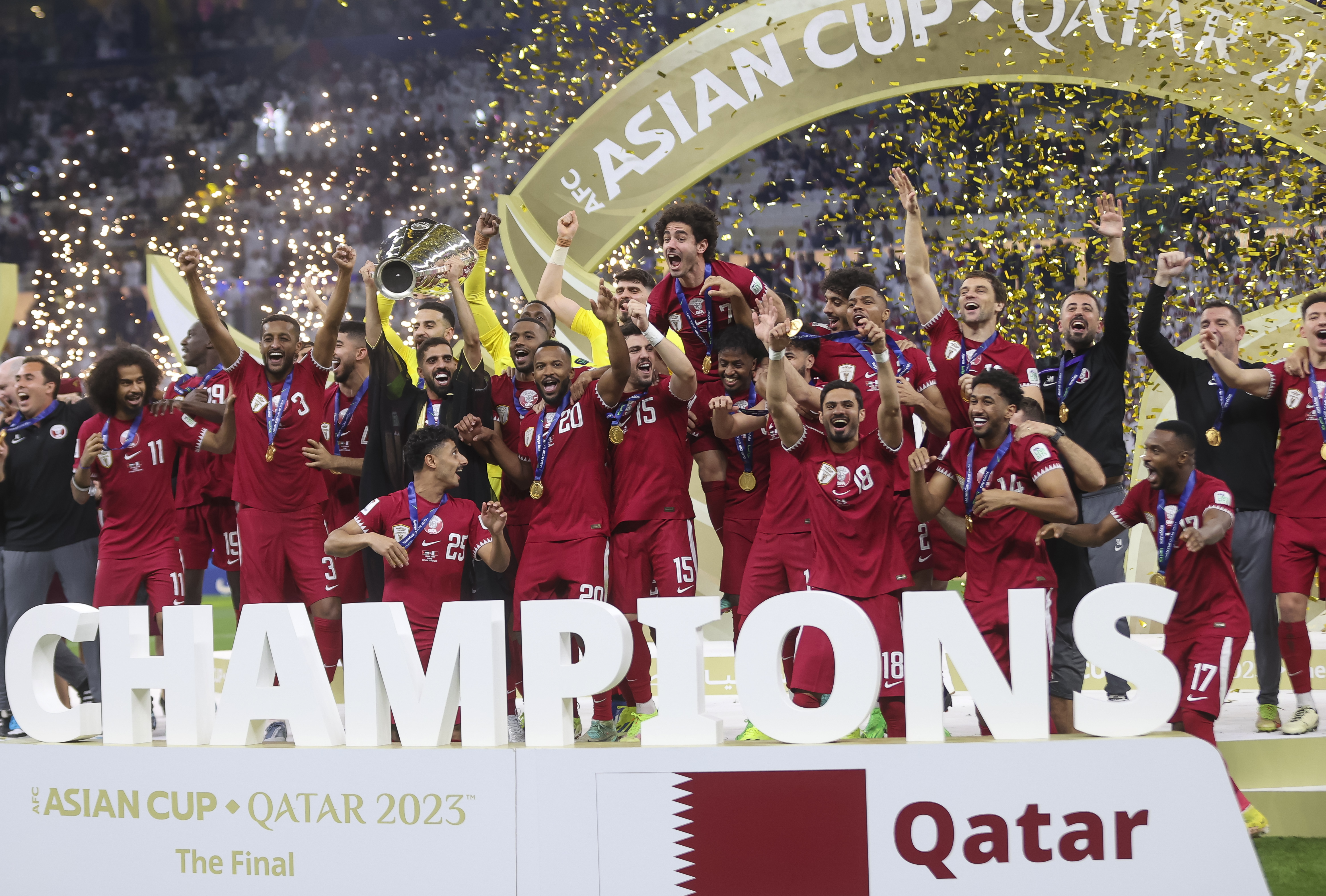

Saudi Arabia and Qatar are set to host qualification mini-tournaments to determine automatic spots in next years World Cup.
The Asian Football Confederation (AFC) are holding the fourth round of their World Cup qualifiers in the October international break, with six teams split in half to compete in two separate round-robin tournaments, the winners of which will automatically book their World Cup place.
So far, so normal but with teams on each side of the draw facing each other just once, the governing body has opted to choose a host nation for the two mini-leagues.
Saudi Arabia and Qatar selected as host nations
In June this year, following a bidding process to host the centralised competition, it was announced that Saudi Arabia and Qatar had been selected.
That sparked controversy among the other nations involved, namely Indonesia, Oman, Iraq and the United Arab Emirates.
With Saudi Arabia and Qatar both in the qualification process themselves, the main gripe was with the home advantage that each nation will benefit from over their competitors.
The two nations have a strong record of winning bids to host tournaments, with Qatar having hosted the 2022 World Cup, and Saudi Arabia lined up to host the 2034 edition.
Is the choice controversial?
But that is why having these two nations as hosts for this part of the qualification process does make sense: theyre both set up and still setting up, in Saudi Arabias case to host dozens of footballing nations and their fans in major contests, so welcoming two sides should be a breeze.
In contrast, the remaining four nations combined have attended just three World Cups in their history, so their footballing infrastructure is unlikely to stack up.
Some have suggested a neutral host, which could work, but would involve two extra teams travelling, along with the associated environmental costs.
Has this ever happened before?
Granted, however, centralising a qualification tournament and having one of the sides host it is rare but its not a first.
A similar system has been used in the process to qualify for this seasons UEFA Womens Champions League.
Manchester United travelled to Stockholm in August, where Marc Skinners side faced Hammarby, in their home stadium, and PSV, winning both games and ultimately, following a win in the next round, ascended to the tournament proper.
The system is new for this cycle in the Asian qualifiers, however, to account for the expansion to 48 teams in the 2026 World Cup.
TOPICS

